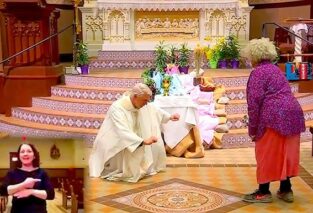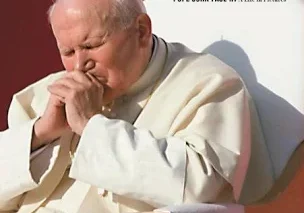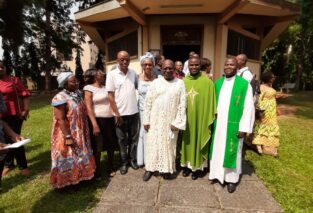
A common practice seems to have taken root in Cameroonian Catholic parishes. During parish feasts, for example, it is not uncommon for the clergy and a few lay members of the parish council, to sit on a separate table, called ‘the high table’, usually placed on a high dais, away from the rest of the parishioners. Invited priests and religious men and women also take their seats around the high table, on which is placed the choicest wines and the juiciest meat.
This practice of separating pastors from their flock has always baffled me. I always seem to hear in my mind’s ear the Psalmist saying, “You have prepared a table in my sight, opposite those who trouble me” (Ps 23:5). Have Christ’s lay faithful become the trouble makers the Psalmist had in mind? I wonder. I won’t be surprised if Pope Francis himself would find such an arrangement embarrassing, he who says that a true shepherd must be one who carries the smell of the sheep on him. If our pastors are made to sit away from us, their flock, how would the smell of the flock ever rub itself on them?
I remember asking this question at a parish council meeting and it was the lay council members themselves who strongly objected to the suggestion that the clergy should be made to sit among the laity during such occasions. The question came up because a few days earlier, we had celebrated our parish feast in honour of our patron saint. Invitations, as it is always the case, had been sent to other parishes for their priests to join us. A young priest, barely five years in the priesthood, came from a sister parish with his parish priest. When he saw me and some parishioners at one table, he stopped over to greet us. He took a seat as he was eager to discuss something I had raised in an article that had appeared in the weekly edition of the diocesan paper. I liked him because he did not only throw flowers on my path but also raised strong objections to some views I had expressed in my article. He was a delight to talk with.
As we talking, two women came to usher him to his seat among the clergy who were already seated at the high table on the raised platform. The young priest objected and said he preferred to sit with us. The women insisted that he had to come with them as his place was among the clergy. When he said he was happy where he was, they reluctantly walked away. Shortly thereafter, another pair of women came bearing the same urgent message. “Father must go where other Fathers are,” was the ultimatum. Again the young priest resisted. The women left and before long two men, members of the parish council, came to dislodge the young priest from our table. They all seemed to be coming in pairs, reminding one of Christ’s disciples, whom he sent out in pairs to urge fallen humanity to repent for the kingdom of heaven was at hand.
Finally, the young priest reluctantly left and joined his confreres at the high table. Shortly thereafter, five nuns arrived and, there being no more room at the high table, were ushered to another table a distance away from ours. I told my table companions that I found it odd that all priests and religious men and women should be so separated from us, the lay faithful. Those were nuns from a congregation who live together and were again made to sit all by themselves. Was that not an opportunity for them to take seats among the parishioners and meet and talk with other people, instead of remaining together as if they were still back at their nunnery?
We all agreed that it would be so much better during such occasions, to disperse the clergy among the congregation so “the smell of the sheep,” to paraphrase Pope Francis, could rub off on them. What if there was a young man or woman, who may think he or she is hearing a call to the priesthood or sisterhood and is confused as to whether such a voice is really from God? During such an encounter, he or she could find a providential opportunity to start a conversation with a priest or a nun that could eventually enlighten him or her as to whether such a voice is actually from God. After all, God calls workers into his vineyard from strange places. Did he not snatch fishermen off their nets and made them fishers of men? Did he not dislodge a tax collector, despised then as tax-collectors, were and still are to this day, from his books at the tax office and made an apostle of him? The harvest is bountiful but the labourers are few, and where the Lord, in his imponderable wisdom, puts his finger on an elect, is a hidden mystery.
Martin Jumbam


